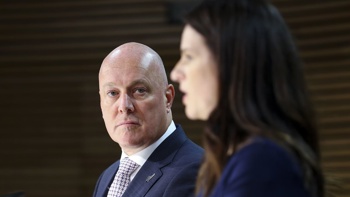
The nine-to-five status quo is being challenged by a number of firms on both sides of the Tasman.
Locally, we've seen Perpetual Guardian experiment with a four-day week, and now there's another innovative example out of Australia.
At Hobart-based financial firm Collins SBA, every employee — from receptionists to senior management — can leave work while the sun is still high, provided they get the job done, as part of the company's five-hour workday approach.
The idea came from the firm's managing director Jonathan Elliot.
When his wife got cancer, Elliot had to drop to part-time hours to look after her and their young baby.
While his family life improved, he was surprised to find his work output didn't suffer. Despite the reduced hours, he was producing the same amount as he would in an eight-hour workday, leading him to question whether the nine-to-five lifestyle was really necessary.
After undergoing a lot of research — including examining similar models in countries like Sweden — the firm took a big risk and decided to undertake a three-month trial of a five-hour workday for all staff, beginning at the start of last year.
At first, they were nervous about the experiment — particularly how clients might view the unconventional practice.
But according to the firm's operations director Claudia Parsons, the benefits were felt almost immediately.
"Our staff produced the same workload, received the same pay, and had the same responsibilities," she told news.com.au. "The idea was that if you could get all this done within a five-hour period, you were free to leave at two.
"It really got people evaluating how they do something, and how they can do it better. It motivated them to evaluate every aspect of their role."
The amount of sick leave being taken also reduced dramatically, with the additional time spent with families and exercising contributing to better mental and physical health.
She said clients proved really supportive of the idea.
"They don't care what hours we work as long as we keep our promises to them," she said.
A CULTURAL SHIFT IN THE OFFICE
The transition created an office-wide shift. Two of the biggest office time-wasters — emails and endless sit-down meetings — were abolished.
"In terms of email, everyone was getting incredibly bogged down," Parsons said. "We switched to a new technology called Yammer — it's kind of like Facebook for business — for our non-urgent team updates, which people would log into just once or twice a day."
Email is a hard thing to avoid in this day and age, when smartphones have us on-call 24/7. Parsons said people in more senior positions were more likely to check their emails after-hours, but everyone else was good at switching off.
Meetings also changed in style, from a drawn-out table process to a speedy stand-up.
"We would physically collaborate, talk and throw ideas around, which we found was much more effective — particularly for complex issues — than the email back-and-forth."
She said the meetings were "bite-sized" stand-ups ("People don't waffle when they're standing") which might last 10 minutes or less.
But perhaps the most interesting shift was in the definition of a good employee.
We tend to see staying back after-hours as the sign of a dedicated worker. If your boss sees you still banging away at your keyboard after hours, maybe you'll be in line for a pay rise, yeah?
At her firm, Parsons suggests getting out on the five-hour mark is actually the sign of a good worker.
"People are getting congratulated for leaving early," she said. "The idea is that the five-hour work day was a reward, not a right. If you're staying back late, you might get a tap on the shoulder, and asked what you're still doing there when your whole team has left.
"There's this beautiful freedom to being able to walk out the door in the middle of the afternoon and know you're not being judged."
WHY IT'S NOT FOR EVERYBODY
There are occasional exceptions to this. Parsons said she'd worked longer-than-usual hours over the past few days, and that people might "stay back" and work a six or seven-hour day. But she said the office has largely embraced the new system.
Of course, the model is not for everybody. It would be difficult for restaurants, cafes and retail stores to make it work — and the same for legal firms that bill by the hour, or 24-hour digital newsrooms.
For some workers, it can be difficult. If you're used to stretching your work day over an eight-hour period or longer, almost doubling your efficiency takes a change in mindset that doesn't suit everyone.
It can also separate the hard workers from the slackers.
But overall, Parsons says the positive effects are undeniable.
"It's hands-down the most life-changing workplace initiative I've ever been involved in," she said. "I'd love for more organisations to get on board."
- News.com.au
Take your Radio, Podcasts and Music with you









